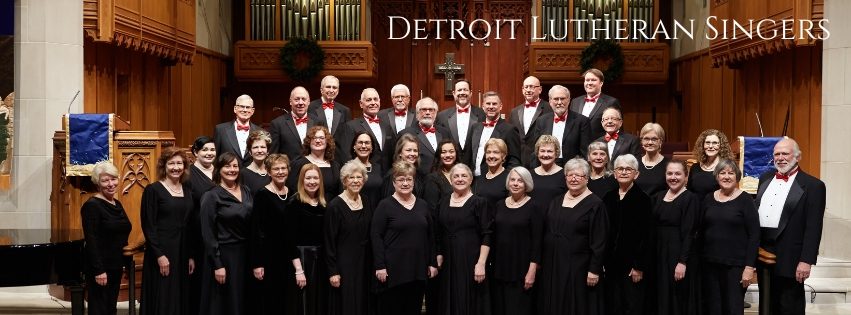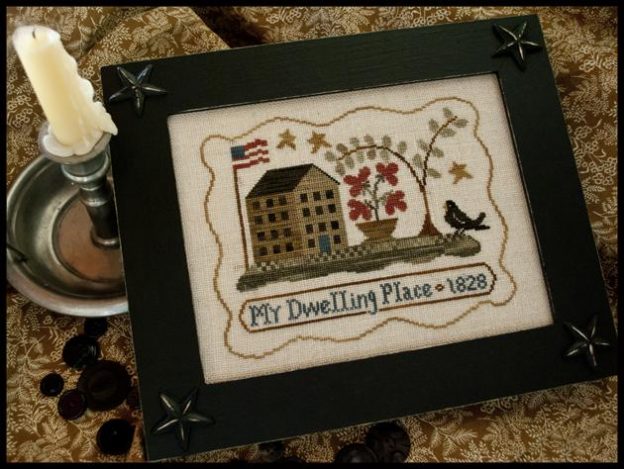Director’s Notes: Having decided on an All-American concert for this fall, I quickly realized there is way too much to put into a “sampler” concert. A quick discovery is that there is so much diversity in American sacred music. Many people would be able to identify a piece of music as being in an “English Cathedral” style, or “Germanic Baroque” style, or “French Impressionist” style. And even within these nationalities there is significant variety. But it is hard to find another country with the variety found in American sacred music: Hymn arrangements, Spirituals, Gospel, Contemporary, Shaker, Folk, Jazz, etc. This concert has a smattering of old and new and various styles drawing from a variety of sources. I may have chosen too much of one thing, or left out your favorite style, or piece, or composer. Which makes me think I should program another sampler in the future using stuff I left out in this one. Be that as it may, I trust you will find most, if not all of this music to be beautiful, and “ours”.
– Chris Hall
Notes about the program pieces:
Fantasy on A Mighty Fortress by John Knowles Paine
John Knowles Paine was born in 1839 in Portland, Maine, and died in 1906 in Cambridge, Massachusetts. His grandfather made military instruments and also built one of the first pipe organs in Maine. Paine studied piano, organ, and harmony as a young man; and at age 19 went to Germany for 3 years to study organ and composition. On returning to America he became organist at the historic Old West Church in Boston and music instructor at Harvard. He later received honorary degrees from both Harvard and Yale. Paine is considered to be one of the finest organists of his time and was responsible largely for introducing the works of J S Bach to America.
Followers of the Lamb by Sister Clarissa Jacobs (1847) arr. Philip Dietterich (1977)
This song was first published in “A Collection of Sacred Songs used in our general worship. Written and transcribed by Clarissa Jacobs beginning August 1847”. This dance tune was popular among the Shakers and was later included in their first published Shaker hymnal with music, “A Sacred Repository of Anthems and Hymns” printed in 1852 at Canterbury, New Hampshire, compiled by Elder Henry C. Blinn.
Kittery (Our Father) by Nahum Tate & Nicholas Brady (1698)
arr. William Billings (1783)
Published as “Kettery” in the first edition of Oliver Bronson’s “Select Harmony” in 1783, it originates from “A Supplement to the New Version of Psalms”, a collection of hymn texts and tunes first published in 1698.
Zion’s Walls by John J. McCurry (1855)
arr. Aaron Copeland (1954)
Originally an arrangement of an early American folk song for soloist and piano, reworked as a choral piece. Copland used American subject matter in much of his music “Appalachian Spring” “Rodeo” and “Billy the Kid “.
Sixty-Seventh Psalm by Charles E. Ives (1939)
Ives made his fortune in the insurance industry. He was experimental in his compositional techniques (polyrhythm, bitonality, tone clusters). Ives proposed in 1920 that there be a 20th Amendment to the U.S. Constitution which would authorize citizens to submit legislative proposals to Congress. Members of Congress would then cull the proposals, selecting 10 each year as referendums for popular vote by the nation’s electorate. He published a pamphlet which proclaimed the need to curtail “The Effects Of Too Much Politics In Our Representative Democracy”. His proposal, not unlike his music, was ignored during his lifetime.
The Best of Rooms by Randall Thompson (1963)
Thompson served on the faculty at Curtis Institute, U of Virginia, and Harvard. One of his notable students was Leonard Bernstein. Thompson is remembered for using American subject matter, including “The Testament of Freedom, Frostiana” (the poetry by Robert Frost) in his works.
The Gift To Be Simple by Elder Joseph Brackett (1848)
arr. Bob Chilcott (1989)
This song was largely unknown outside Shaker communities until Aaron Copland used its melody for the score of Martha Graham‘s ballet “Appalachian Spring” first performed in 1944.
Oculi Omnium by Eric Whitacre (2010)
Eric Whitacre (born 1970) is known for his “Virtual Choir” projects, bringing individual voices from around the globe together into an online choir. In March 2016, he was appointed as Los Angeles Master Chorale‘s first Artist-In-Residence at the Walt Disney Concert Hall.
Clear Our Heart, O God by Tom Trenney (2014)
Tom Trenney served as director of music at First Presbyterian Church, Birmingham, and is now director of music at First Plymouth Church in Lincoln, Nebraska. The text is by J. Philip Newell, one of the world’s foremost Celtic spiritualists.
Requiem For The Living – Sanctus by Dan Forrest (2014)
Dan Forrest notes the music in the Sanctus contains an “ethereal opening section inspired by images of space. The first two sections are inspired by views of space from the Hubble Telescope, and views of Earth from the International Space Station respectively. The last section is inspired by people who reflect the image of God”.
Pilgrims’ Hymn by Stephen Paulus (1997)
Paulus has written over 150 works for chorus ranging from his Holocaust oratorio, “To Be Certain of the Dawn”, to the poignant anthem, “Pilgrims’ Hymn,” sung at the funerals of U.S. Presidents Gerald Ford and Ronald Reagan .
Dear Lord And Father Of Mankind by Gilbert Martin (1994)
Long-time friend of Chris and Doris, Gil was the guest conductor for the DLS in the Fall of 2013. Gil is known across the country as an arranger of hymns and works for organ. This piece is an original melody to the familiar text. It was written in memory of his mother, Dorothy.
All My Hope by Dave Brubeck (1979)
This piece comes from a larger work, “To Hope! A Celebration!” Staying with the improvisational nature of jazz, we have added “skat singing” – a style which is improvised on the spot
Ain’-a That Good News (Traditional Spiritual)
arr. William Dawson (1974)
John Wesley Work Jr. was the first African-American collector of folk songs and spirituals, as well as a choral director, educationalist and songwriter. This spiritual was first published in “American Negro Songs” by J. W. Work, 1940.
Elijah Rock (Traditional Spiritual)
arr: Moses Hogan (1994)
Traditionally, it is believed that African-American spirituals have both a literal meaning and may also refer to the Abolitionist Movement and the underground railroad. Elijah Rock seems to be part of that tradition. While specific meanings behind the text draws biblical references to Elijah and Moses and their roles as prophets of freedom, it is also possible that the reference to Moses is related to Harriet Tubman and her role as an abolitionist. Regardless of which message of freedom this song provides, it also serves as an important reminder of our American heritage and history.
All My Trials (Bahamian Spiritual)
arr. Norman Luboff (1972)
Years ago, (1950’s-60’s) there were many active, professional choirs. A singer could make a living just being in one of them… the Norman Luboff Choir, Fred Warring and the Pennsylvanians, the Robert Shaw Chorale, Mitch Miller, the Roger Wagner Chorale and many others made this happen.
Saints Bound For Glory by William Walker (1840)
arr. Parker and Shaw (1961)
William Walker was an American Baptist song leader, shape note “singing master“, and compiler of four shape note tune books. In 1835, Walker published a tune book entitled “The Southern Harmony”, using the four-shape shape note system of notation. In 1846 he issued “The Southern and Western Pocket Harmonist”. Intended as an appendix to the Southern Harmony, the Pocket Harmonist contains a large number of camp-meeting songs with refrains. In 1867 (preface signed October 1866), Walker published a tune book entitled “Christian Harmony”, in which he adopted the seven shape notation.
Praise His Holy Name by Keith Hampton (1998)
Dr, Keith Hampton (affectionately known as “Doc”) is a conductor, composer, educator, church musician, organ performer, adjudicator and workshop clinician. In addition to Chicago Community Chorus (CCC), he is the Director of Music Ministries and Organist/Choirmaster at the Park Manor Christian Church, Chicago, IL. As a composer, Dr. Hampton is best known for his arrangement of gospel songs and spirituals. In 2010, The North Central American Choral Directors Association named Dr. Hampton one of the top 25 contemporary composers.


